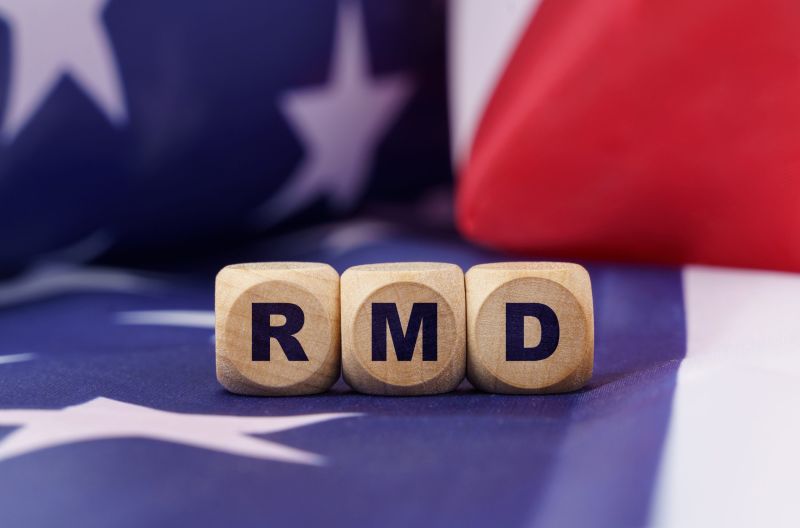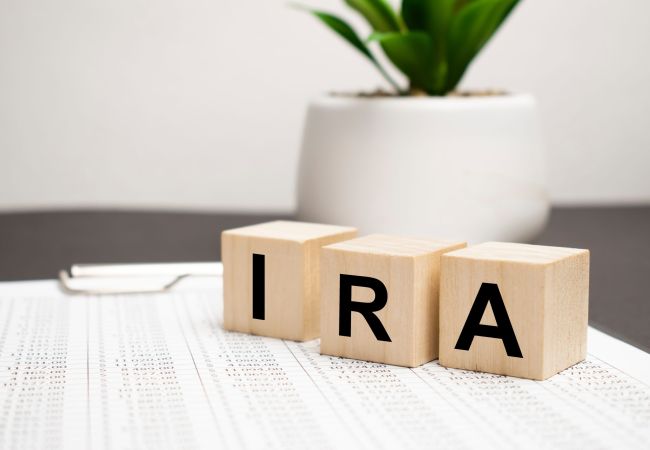- Ed Slott’s IRA Corner
- Navigate the New RMD Rules with Confidence
Navigate the New RMD Rules with Confidence

In July 2024, the IRS released critical updates to required minimum distribution (RMD) regulations under the 2020 SECURE Act, as well as proposed regulations under the SECURE 2.0 Act of 2022. Effective starting in 2025, these updates clarify several areas of confusion, including trust beneficiaries, spousal rollover rules, and the 10-year payout rule for non-spouse beneficiaries.
Key RFG Rule Changes for Your Financial Planning
- Annual RMDs During the 10-Year Rule Period: Clarity at Last
Beneficiaries must now take annual RMDs if the account holder passed after their Required Beginning Date (RBD). The previously waived RMDs for 2021–2024 will no longer apply starting in 2025.
Planning Tip: Beneficiaries subject to the 10-year rule should consider withdrawing more than the annual RMD to avoid a hefty tax bill in the 10th year when the account must be emptied. Focusing on “maximum” withdrawals rather than “minimum” can help minimize taxes.
- Simplification for Eligible Designated Beneficiaries (EDBs)
The definition of EDBs is expanded, including new provisions for:
- Stepchildren, adopted children, and eligible foster children of the IRA owner.
- Individuals with disabilities under new safe harbor guidelines.
- Simplified documentation for beneficiaries with chronic illnesses or disabilities.
Planning Tip: These changes make it easier for more beneficiaries to qualify as EDBs and benefit from extended payout options.
- Trusts as Beneficiaries: Loosened Requirements
New rules ease the burden of using trusts as beneficiaries:
- Trusts can now apply RMD rules separately for sub-trust beneficiaries if the trust is terminated and divided into sub-trusts upon the account owner’s death.
- Trustees no longer need to provide exhaustive documentation to satisfy “see-through” rules, simplifying administrative processes.
Planning Tip: While the SECURE Act reduced the appeal of trusts for RMD planning, these updates clear up confusion and provide new opportunities for trust beneficiaries.
More RFG Rule Changes for Your Financial Planning
- Enhanced Flexibility for Spouse Beneficiaries
Surviving spouses can now delay RMDs until the deceased spouse would have reached RMD age. These distributions will be calculated using the Uniform Lifetime Table and the spouse’s age, resulting in smaller RMDs.
Planning Tip: This is a valuable option for surviving spouses, allowing them to delay distributions and reduce RMDs while still retaining the ability to roll over the account at any time.
- Elimination of Confusing Requirements for Elderly Beneficiaries
The IRS has eliminated the need for elderly beneficiaries to simultaneously monitor their own shorter life expectancy alongside the deceased’s life expectancy.
Planning Tip: This welcome change removes unnecessary complexity, especially for older beneficiaries.
- Hypothetical RMD Rule for Spouse Beneficiaries: Retained
Spousal rollover rules now ensure that “hypothetical RMDs” must be taken if the 10-year rule is elected. This ensures that RMDs cannot be avoided by using a combination of the 10-year rule and a spousal rollover.
Planning Tip: This reiterates the IRS’s commitment to enforcing RMDs. Be sure to plan carefully to remain compliant.
What’s Next with RMD Rule Changes?
These new rules bring both opportunities and challenges, particularly when it comes to optimizing tax strategies for inherited retirement accounts. To help you better understand these updates and how they apply to your situation, we’ve created a detailed guide: “New RMD Rules Are Here.”
Download this free guide below.
Suppose you’re a beneficiary of an inherited retirement account or navigating spousal or trust-related RMD rules. In that case, it’s essential to have a strategy to meet your financial goals while remaining compliant.
Financial Success Doesn’t Happen by Chance
RMD rules can be confusing, and mistakes can be costly. That’s why we’re here to help. If you have questions about how these new rules impact you or need assistance creating a personalized plan, don’t hesitate to reach out.
Virtual Consultation
Contact Chris Robinson, ChFC, at our office, 940-464-4104, or schedule a Virtual Consultation online at RFGWealthAdvisory.com/virtualconsultation/.
At RFG Wealth Advisory in Argyle, Texas, we take pride in being an independent, fee-only Registered Investment Advisor firm. Our client’s interests always come first, and we offer a transparent, simple fee structure that’s easy to understand.
Let’s work together to ensure you’re ready for these changes and positioned for financial success.
Investment advice is offered through RFG Wealth Advisory, a Registered Investment Advisor.
Disclaimer
Financial Success Doesn’t Happen by Chance.
Contact lead advisor Chris Robinson with RFG Wealth Advisory in Argyle, Texas to discuss your questions.
RFG Wealth Advisory is an independent, fee-only Registered Investment Advisor firm in Argyle, Texas. At RFG Wealth, our fiduciary duty ensures your interests always come first, and we maintain a transparent fee structure for your peace of mind. Contact us today!
Investment advice is offered through RFG Wealth Advisory, a Registered Investment Advisor.
Schedule a Virtual ConsultationChris Robinson is the president of RFG Wealth Advisory, which he founded in 1995. He is a current resident of Argyle and native of Denton, Texas.
- Chris Robinsonhttps://rfgwealthadvisory.com/author/chris-robinson/
- Chris Robinsonhttps://rfgwealthadvisory.com/author/chris-robinson/
- Chris Robinsonhttps://rfgwealthadvisory.com/author/chris-robinson/
- Chris Robinsonhttps://rfgwealthadvisory.com/author/chris-robinson/
Related Posts
“These materials have been independently produced by RFG Wealth Advisory. RFG Wealth Advisory is independent of, and has no affiliation with, Charles Schwab & Co., Inc. or any of its affiliates (“Schwab”). Schwab is a registered broker-dealer and member SIPC. Schwab has not created, supplied, licensed, endorsed, or otherwise sanctioned these materials nor has Schwab independently verified any of the information in them. RFG Wealth Advisory provides you with investment advice, while Schwab maintains custody of your assets in a brokerage account and will effect transactions for your account on our instruction.”
The LPL Finanical registered representatives associated with this website may discuss and/or transact business only with residents in the states in which they are properly registered or licensed. No offers may be made or accepted from any resident of any other state.






